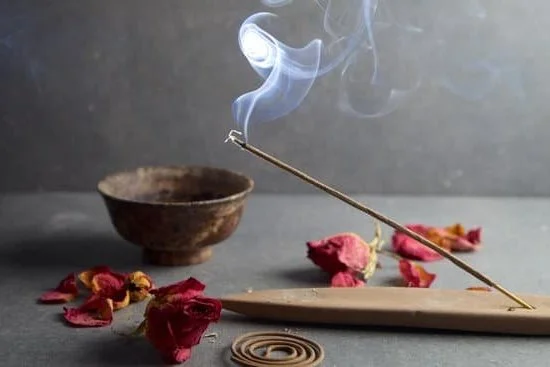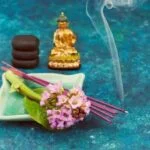Aromatherapy, the use of essential oils to enhance physical and mental well-being, has gained popularity for its various therapeutic benefits. Essential oils are derived from plants and are known for their aromatic properties as well as their potential healing abilities. In this article, we will explore the world of aromatherapy and delve into the different types of essential oils that can be used for specific purposes.
Aromatherapy is a holistic healing treatment that uses natural plant extracts to promote health and well-being. The practice dates back thousands of years, with ancient civilizations using aromatic plant materials for medicinal and spiritual purposes. Today, aromatherapy is widely used as a complementary therapy to conventional medicine, offering a natural alternative for managing common ailments and supporting overall wellness.
Essential oils play a key role in aromatherapy, each with its own unique properties and benefits. Whether it’s for relaxation, sleep improvement, pain relief, skincare, or mood enhancement – there is an essential oil that can help address your specific needs.
Understanding the different types of essential oils and their therapeutic qualities is important in harnessing the full potential of aromatherapy. In the following sections, we will provide a comprehensive guide to different types of essential oils and how they can be used effectively for various purposes.
Understanding Essential Oils
When it comes to aromatherapy, essential oils play a crucial role in reaping the benefits of this holistic practice. Essential oils are highly concentrated plant extracts that capture the natural aroma and properties of the plant. There are numerous types of essential oils, each with its own unique scent and potential therapeutic benefits.
One of the most popular essential oils is Lavender, known for its calming and soothing effects. It is often used for relaxation and stress relief, making it a common choice for those struggling with anxiety or insomnia. On the other hand, peppermint oil is often hailed for its ability to boost energy and promote mental clarity. Its invigorating scent can help combat fatigue and improve focus, making it a great choice for long workdays or study sessions.
For those seeking pain relief, eucalyptus oil is a go-to option. With its anti-inflammatory properties, eucalyptus oil can help alleviate muscle aches and pains, making it a favorite among athletes and workout enthusiasts. For skincare and haircare purposes, Tea Tree oil is highly regarded for its antibacterial and antifungal properties, making it effective in treating acne and dandruff.
As you delve deeper into the world of aromatherapy, it’s important to understand the unique properties of different essential oils to determine which ones best suit your needs. Whether you’re looking to relax, improve sleep quality, enhance mood, or address specific health concerns like pain or skincare issues, there’s an essential oil out there that can provide natural support for your well-being.
By familiarizing yourself with various essential oils and their benefits, you can harness the power of aromatherapy to enhance your overall wellness and balance.
Aromatherapy for Relaxation
Aromatherapy is a holistic healing treatment that uses natural plant extracts to promote health and well-being. One of the most popular uses of aromatherapy is for relaxation, stress relief, and calming effects. The use of essential oils in aromatherapy can have a powerful impact on our emotions and can help create a sense of calm and tranquility.
When it comes to choosing the best oils for stress relief and calming effects, there are several essential oils that stand out. Lavender oil is one of the most widely used essential oils for relaxation due to its soothing and calming properties. It has been shown to reduce anxiety, improve sleep quality, and promote relaxation.
Another popular choice is chamomile oil, which has a gentle, calming effect on the mind and body. Additionally, bergamot oil is known for its mood-boosting properties and can help alleviate feelings of stress and anxiety.
In addition to these oils, other essential oils such as rose, ylang-ylang, and frankincense are also commonly used for their relaxation-inducing properties. These essential oils can be used in a variety of ways, including through inhalation, topical application, or diffusing them into the air.
Whether you’re looking to unwind after a long day or simply want to create a peaceful atmosphere at home or work, incorporating these essential oils into your routine can be incredibly beneficial for promoting relaxation and reducing stress.
| Essential Oil | Relaxation Benefits |
|---|---|
| Lavender | Reduces anxiety, improves sleep quality |
| Chamomile | Gentle calming effect on the mind and body |
| Bergamot | Mood-boosting properties; alleviates feelings of stress and anxiety |
Aromatherapy for Sleep
Aromatherapy has been used for centuries to promote relaxation, alleviate stress, and improve sleep. The use of essential oils in aromatherapy can have a significant impact on your sleep quality and overall well-being. Different essential oils have different properties that can help induce a sense of calmness and relaxation, making them ideal for promoting better sleep.
Lavender Oil
Lavender oil is perhaps the most popular choice for promoting better sleep. Its soothing and calming properties make it an excellent choice for creating a tranquil atmosphere that promotes relaxation. Studies have shown that inhaling lavender oil before bedtime can improve the quality of sleep and reduce anxiety.
Chamomile Oil
Chamomile oil is another essential oil known for its sedative effects, making it an ideal choice for improving sleep quality. It is often used to reduce anxiety, calm the mind, and promote better sleep. Aromatherapists often recommend using chamomile oil in a room diffuser or adding a few drops to a warm bath before bedtime.
Sandalwood Oil
Sandalwood oil has a relaxing and grounding effect, making it beneficial for promoting deep relaxation and enhancing the quality of sleep. The warm, woody aroma of sandalwood can help alleviate stress and create a serene environment conducive to restful sleep.
Incorporating these essential oils into your bedtime routine can significantly improve your sleep quality and overall well-being. Whether through room diffusers, pillow sprays, or aromatic baths, the use of these essential oils in aromatherapy can be an effective natural remedy to promote better sleep and relaxation.
Aromatherapy for Energy and Focus
When it comes to using aromatherapy for energy and focus, there are several essential oils that are known for their ability to boost energy levels and improve mental clarity. These oils can be used in a variety of ways, such as through diffusers, inhalers, or even added to bathwater for a rejuvenating experience. Some of the best essential oils for promoting energy and focus include:
- Peppermint: Known for its invigorating scent, peppermint oil can help alleviate feelings of fatigue and enhance mental alertness.
- Rosemary: This herbaceous oil has been shown to improve cognitive function and is often used to promote mental clarity and concentration.
- Lemon: With its bright and citrusy aroma, lemon oil is often used to uplift the mood and increase energy levels.
- Eucalyptus: This refreshing oil can help open up the airways, making it easier to breathe deeply and feel more awake and focused.
It’s important to note that everyone’s response to essential oils may vary, so it may take some experimentation to find the right oils that work best for you. Some people may respond better to certain oils than others, so it’s worth trying out a few different options to see what works best for your individual needs.
In addition to using these essential oils through aromatherapy, they can also be used topically when diluted with a carrier oil. Applying a small amount of diluted oil to pulse points or temples can offer a quick pick-me-up during the day.
Whether you’re looking for an energy boost at work or trying to stay focused during study sessions, incorporating these essential oils into your routine can make a noticeable difference in your overall energy levels and mental clarity.
Aromatherapy for Pain Relief
When it comes to using aromatherapy for pain relief, essential oils can be a natural and effective way to alleviate discomfort and aches. Certain essential oils have properties that can help reduce inflammation, improve circulation, and relax muscles, which are beneficial in managing various types of pain.
One popular essential oil for pain relief is peppermint oil. Its cooling sensation can provide relief for headaches, muscle pains, and even arthritic discomfort. Another commonly used oil is lavender, known for its calming and relaxing effects that can help ease both physical and emotional pain. Eucalyptus oil is also often used for its analgesic properties which can be helpful in soothing sore muscles or respiratory-related discomfort.
It’s important to note that while essential oils can offer temporary relief from pain, they are not meant to replace professional medical treatment or advice. However, when used properly and safely, integrating aromatherapy into your pain management routine can complement other treatments and contribute to an overall sense of well-being.
| Essential Oil | Pain Relief Benefit |
|---|---|
| Peppermint | Cooling effect for headaches and muscle pains |
| Lavender | Calming effects for physical and emotional pain |
| Eucalyptus | Analgesic properties for muscle soreness and respiratory discomfort |
Aromatherapy for Skin and Hair
Aromatherapy has been used for centuries to promote health and well-being, and it can also be beneficial for skincare and haircare. When it comes to using essential oils for skin and hair, it’s important to choose the right ones for your specific needs. From moisturizing dry skin to promoting hair growth, there are various essential oils that can address different concerns.
Best Essential Oils for Skincare
For skincare, some of the best essential oils include lavender, tea tree, and rosehip. Lavender oil is known for its calming properties and can help soothe irritated skin. Tea tree oil has antimicrobial properties that make it great for treating acne and other skin conditions. Rosehip oil is rich in vitamins and antioxidants, making it an excellent choice for nourishing the skin and reducing signs of aging.
Best Essential Oils for Haircare
When it comes to haircare, essential oils like peppermint, rosemary, and jojoba are popular choices. Peppermint oil has a cooling effect on the scalp and can stimulate hair growth. Rosemary oil is known for its ability to improve circulation in the scalp and promote thicker hair. Jojoba oil is similar to the natural oils produced by the scalp, making it a great option for moisturizing the hair and reducing dandruff.
How to Use Essential Oils for Skincare and Haircare
There are various ways to incorporate essential oils into your skincare and haircare routine. You can add a few drops of essential oil to your moisturizer or shampoo, create a DIY face or hair mask with essential oils, or even mix them with carrier oils like coconut or almond oil for a massage or scalp treatment. It’s important to dilute essential oils properly before applying them directly to the skin or scalp to avoid irritation.
When it comes to using aromatherapy for skincare and haircare, choosing the right essential oils based on your specific needs is crucial. Whether you’re looking to improve your complexion or enhance the health of your hair, incorporating aromatherapy into your beauty regimen can provide natural and effective solutions.
Aromatherapy for Mood Enhancement
Aromatherapy is a powerful alternative medicine that uses essential oils to promote physical, mental, and emotional well-being. When it comes to mood enhancement, certain essential oils have the ability to improve mood and emotional well-being. These oils can be used through inhalation or topical application to create a calming and uplifting effect on the mind and body.
There are several essential oils that are known for their mood-enhancing properties. Here are some popular ones:
- Lavender: Known for its calming and relaxation benefits, lavender essential oil can help reduce stress and anxiety, promoting a sense of calmness.
- Bergamot: This citrusy oil is often used to uplift the mood and relieve feelings of sadness or depression.
- Ylang Ylang: With its sweet, floral scent, ylang ylang oil is commonly used to promote relaxation and reduce feelings of nervousness or agitation.
When using essential oils for mood enhancement, it’s important to consider individual preferences and sensitivities. Some people may respond better to certain scents than others, so it’s important to experiment with different oils to find the ones that work best for you.
Incorporating aromatherapy for mood enhancement into your daily routine can be as simple as diffusing essential oils in your home, using them in a bath, or applying them topically with a carrier oil. It’s important to note that while aromatherapy can provide support for emotional well-being, it should not be used as a substitute for professional mental health treatment when needed.
Conclusion
Aromatherapy has been used for centuries as a natural remedy for various health and wellness concerns. From stress relief to pain management, the use of essential oils has been shown to have numerous benefits for both physical and emotional well-being. As we continue to explore the potential of aromatherapy, it is important to acknowledge the wide range of essential oils available and their diverse properties that can aid in achieving overall wellness and balance.
The key to embracing aromatherapy for overall wellness and balance lies in understanding which essential oils are best suited for specific needs. Whether it’s promoting relaxation, improving sleep, boosting energy, alleviating pain, or enhancing mood, there is a wide selection of essential oils that cater to these needs. By incorporating aromatherapy into one’s daily routine, individuals can experience the therapeutic effects of these natural remedies.
In conclusion, the use of aromatherapy and essential oils can be a valuable addition to anyone’s wellness regimen. The versatility of essential oils allows for personalized solutions to common health issues, making it an accessible and effective option for improving overall well-being. By incorporating aromatherapy into our lives, we can take proactive steps towards achieving balance and harmony in both body and mind.
Frequently Asked Questions
What Aromatherapy Oils Are Good for What?
Aromatherapy oils can be good for various purposes. For example, lavender oil is known for its calming and relaxing effects, while peppermint oil is often used for its energizing and invigorating properties. Eucalyptus oil is commonly used to help with respiratory issues, and tea tree oil is popular for its antibacterial and antifungal properties.
How Do I Choose Aromatherapy Oils?
When choosing aromatherapy oils, it’s essential to consider their intended use and benefits. Take into account the specific aroma you prefer, as well as any potential therapeutic effects you are seeking. It’s also important to ensure that you are purchasing high-quality, pure essential oils from reputable sources to ensure their effectiveness.
How Do I Know What Essential Oils to Use?
Knowing what essential oils to use often requires some research and experimentation. You can start by learning about the different properties of various essential oils and understanding their potential benefits.
It’s also helpful to consider your personal preferences when it comes to scents and how each oil makes you feel when you use it. Consulting with a qualified aromatherapist can also provide valuable guidance on which essential oils may be best suited to your needs.

Are you looking for a natural way to improve your health and wellbeing?
If so, aromatherapy may be the answer for you.





